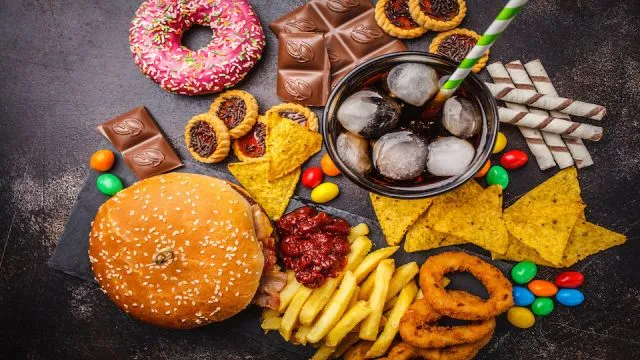
Do the emotional rollercoasters in life cause you to overeat or head out for a late night run to the store for ice cream, a bag of chips, or candy? If so, you might be an emotional eater, and it might be contributing to a bulge in your belly. Stress and negative emotions can trigger a whole host of reactions in your body that may not only increase your desire for food but also increase your desire for comfort or junk food. The kind of food that helps you quickly pack on pounds. Getting a handle on the vicious emotional eating cycle is paramount for longterm health and wellness.
The stress hormone cortisol
Stress causes the hormone cortisol to rise in our blood. This hormone, produced by the adrenal gland helps to regulate metabolism and plays an important role in blood sugar balancing and memory. As levels of cortisol skyrocket in response to stress, inflammation in the body rises and stubborn fat begins to accumulate around the midsection. In addition, stress may also wreak havoc on sleep and cause you to eat when you would not normally eat – like in the middle of the night! Emotional eating usually results in feelings of guilt or shame, which further contribute to stress and fuel the cycle.
There is good news, though. While it may not be possible to stop the chaos in your life all the time, you can learn to get ahead of the emotional eating cycle and stop it before it begins. Here are some tips to get back on track.
How to get a handle on emotional eating
When stress is knocking on your door, threatening to send you into an emotional eating episode, try this:
- Keep track of what you eat: Keep a food diary that includes information on what you eat, when you eat, and how you are feeling when you eat. Also, record your hunger level when you eat. Over time, you may notice a connection between your mood and food.
- Get some stress-busting tools: Stress management tools such as deep breathing, yoga, meditation, and exercise can help to keep stress in your life from getting out of control.
- Seek support: Getting a handle on emotional eating is not something that you should do alone. In fact, those who have a weak social network or live alone in isolation, are more likely to experience emotional eating in response to stress. Talk to family and close friends when life seems overly chaotic or seek out an emotional eating support group.
- Clean out your cupboard and fridge: Although some people will let nothing get in their way of emotional eating – even a twenty minute trip to the store – not having unhealthy food within easy reach will help. Fill your fridge and cupboard with fresh fruit and veggies along with other healthy options.
- Count to three: When you find yourself reaching for food for comfort, stop… count to three and ask yourself if you are really hungry or are you just wanting to eat to ease some uncomfortable emotion? Even waiting just that little bit of time can help put reality into perspective and put the breaks on emotional eating.
- Don’t deprive yourself: If you are trying to lose weight, not eating enough calories can lead to overeating at the slightest emotional turbulence. Be sure that you are eating enough protein and healthy fats to help keep cravings under control.
- Combat boredom: Try not to snack when you are bored – instead take a nice walk, read a book, watch a movie, or engage in a hobby or chat with friends. Stress and boredom can be very ugly when they team up!
- Don’t beat yourself up: If you slip, don’t beat yourself up. If you have an episode of emotional eating, forgive yourself and get back up on your feet and move forward. The best thing that you can do when a setback occurs is to learn from it, hold your head high and embrace another day.
Remember, living a healthy life is a journey that takes time and patience… you will get there one day at a time.
-Susan Patterson

